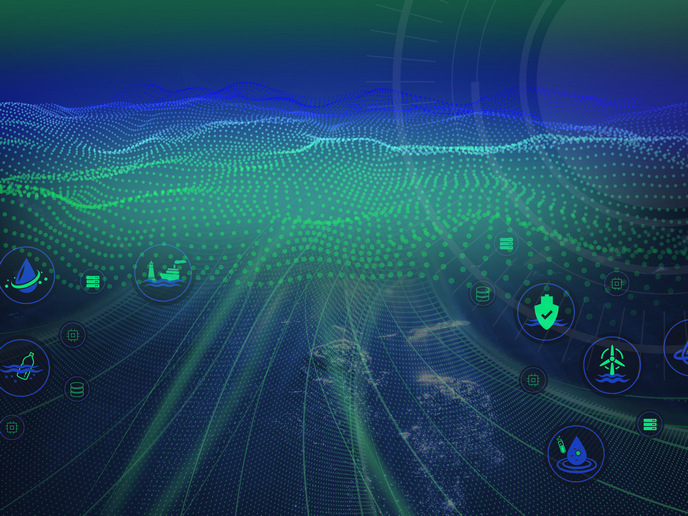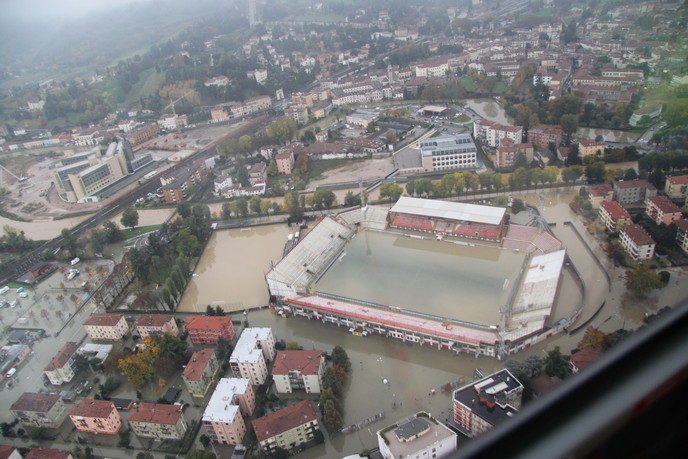Integrated digital solution facilitates access to oceanic data and boosts decision-making
Europe places a high priority on informed policymaking, addressing environmental challenges, and driving knowledge-based innovation as underscored in key documents like The European Green Deal and the Digital Strategy. This commitment extends into marine and freshwater environments as illustrated by the Mission Starfish 2030 report, which outlines a comprehensive plan to map, sequence, observe and forecast our oceans, seas and rivers. It suggests using existing forecasting and climate modelling tools to consolidate observation data from across the EU and worldwide into a user-friendly, open-source platform. The EU-funded ILIAD project creates interoperable, data-intensive and cost-effective Digital Twins of the Ocean (DTOs), contributing to the implementation of the European Green Deal. Digital twin are virtual copies of a physical system that uses real-time data to monitor and simulate behaviour. With a surge in ocean data from diverse observation systems and technological advances in data processing, ILIAD aims to unlock this wealth of data and transform it to valuable information and services for a wide range of users. Project advancements will enable stakeholders from the public and private sectors to monitor the health of European seas, examining impacts from climate change to biodiversity loss.
Fusing advanced technologies to unveil complex oceanic phenomena
At the forefront of ILIAD’s innovations is the use of DTOs – interactive tools to deepen understanding and aid in the conservation of our oceanic environments. ILIAD harnesses cloud computing, the internet of things, big data and more, turning massive data into actionable insight. By utilising a diverse array of data sources, ILIAD refines the ability to synthesise and analyse oceanic data. “The digital twin concept helps inform new standards and best practices, inspired by the ocean’s vastness and complexity and the numerous intricate human interactions it hosts,” notes Bente Lilja Bye, ILIAD’s innovation manager. An innovative aspect of ILIAD is its focus on improving geospatial data exploration. Through geovisualisation and immersive technologies, the project makes oceanic data accessible and engaging, democratising ocean science and enabling interactive experiences with geospatial information in unprecedented ways. Envisioning a more interconnected ocean ecosystem, researchers are also expanding the Iliad Marketplace. This space serves as a hub for distributing applications, plug-ins, data and services derived from the DTOs, fostering innovation and collaboration among stakeholders in the ocean community.
Promising implications
ILIAD has demonstrated its potential to address pressing environmental concerns through a series of diverse pilots – from oil spill and aquaculture monitoring to citizen science projects on jellyfish, and initiatives focused on sediment transport, harbour safety and biodiversity. At its core, ILIAD has been focusing on the development of an interoperable framework facilitating data and application reuse across various domains and locations. It employs innovative harmonisation technologies for integrating diverse types of ocean-related data. This integration transforms various data sources into actionable knowledge, offering deeper understanding of oceanic environments. ILIAD is also greatly encouraging active participation from individuals, governments and industries. “ILIAD’s innovative efforts transcend mere data collection and technologies; they empower communities, drive policy changes and unlock new possibilities in the Blue Economy. Together, we are redefining our relationship with the ocean and paving the way for a more sustainable future,” highlights Babis Ipektsidis, a member of ILIAD’s project coordination team. ILIAD is a crucial component of the broader ecosystem for Digital Twins of the Ocean that the EU is currently building, in particular through EDITO-Infra. This will be the foundation where all participating research outputs can come together and support effective marine management through the development of the EU Digital Twin Ocean.
Keywords
ILIAD, digital twin, oceanic data, geospatial data, internet of things, big data, marketplace, Green Deal Data Space







